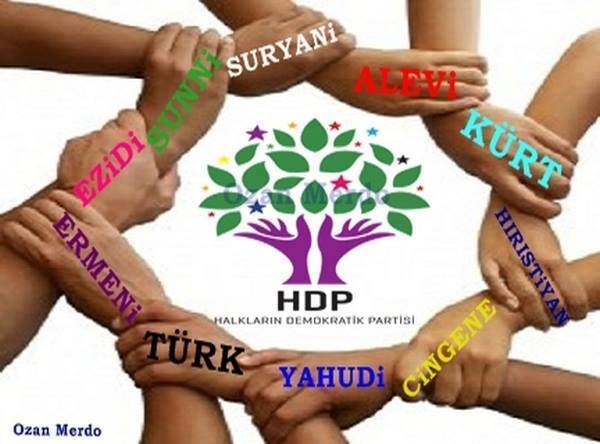A new state of emergency statutory decree, numbered 686, was issued on 7 February 2017, barring 4464 civil servants from public offices. Of these 330 are academic personnel, including 184 Peace Academics who had protested Erdoğan-AKP Government’s military operations in Kurdish cities held under months-long curfews in 2016.
Since the start of emergency rule on 20 July 2016, over 130,000 civil servants have been dismissed and barred from public sector jobs with twenty statutory decrees issued by the government.
These blanket purges attest to partisan abuse of state of emergency powers to punish political opponents after the July 15 coup attempt.
The case of Peace Academics warrants particular notice for showing the continuity and systematic nature of the Erdoğan-AKP government’s determination to crush any critical public debate on the Kurdish issue with recourse to the charge of terrorism.
After having signed the declaration entitled “We Will Not Be A Party To This Crime” in January 2016, the Peace Academics were targeted by President Erdoğan himself as abettors of terrorism. This has resulted in hundreds of legal and disciplinary proceedings against the signatories on charges of “supporting PKK terror.”
The case of Peace Academics also warrants attention to the partisan kernel of a much broader liquidation of higher education system under Erdoğan-AKP’s state of emergency rule. In five statutory decrees issued since September 2016 (Numbered 672, 675, 677, 679 and 686), 4811 academics from more than fifty universities have been dismissed and barred from public office. In addition, at least 1102 administrative personnel working in these institutions have been sacked.
Significantly, the purges in universities have gained momentum after a statutory decree (No. 676, dated 29 October 2016) had changed the system of electoral succession to the rector’s office (with the votes of academics) with a system of rectors’ appointment by the President upon recommendation of the anti-democratic Council of Higher Education. On 8 February 2017, the chair of this Council said that new purge lists were being prepared for academics by rectors’ offices across the country.
The Erdoğan-AKP government is committed to liquidating the grounds of critical thinking, research and debate on vital issues of democracy, peace and public order in Turkey not only for the present-day but also for generations to come.
Within this broader context, we would also like to attract your attention to the fact that the Commission of Inquiry for State of Emergency Practices, which was recently set up in response to criticisms from the international community and the debates at the PACE on returning Turkey back to the monitoring process in particular, is but a tactical move of the Turkish government to ease international pressures regarding blanket and partisan purges –including those of the Council of Europe and the PACE. It is important to highlight that the recent purge of 4,464 civil servants by Decree No 686 did follow the establishment of the Commission of Inquiry.
On 23 January, the Bureau of the PACE chose to postpone to its April sessions the debate on the functioning of democratic institutions in Turkey and a possible return to the monitoring process. This has definitely emboldened the Erdoğan-AKP regime, giving it ample time to silence remaining critical voices in the country.
Hişyar Özsoy
Deputy Co-chair of HDP Responsible for Foreign Affairs
Member of Parliament


